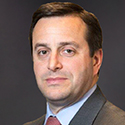This article was originally published on
CityWire. Read the article
here.
The expectations and unique requirements of HNW/UHNW individuals and families, when it comes to protecting, preserving and passing on their wealth, are growing increasingly sophisticated. They demand boutique and bespoke expertise along with digitally-enabled services blended with human interaction and broad geographic reach from their managers and providers. This is against the backdrop of an ever-changing and evolving geopolitical environment.
Over the last 12 months, the pandemic has triggered wide spread economic uncertainty and unprecedented volatility in the markets. Indeed, the daily volatility of the MSCI ACWI flagship global equity index in 2020 was 28%—nearly three times higher than in 2019 [1]. A desire for greater control has resulted in HNWIs requesting more and more hands-on interaction with their wealth and specifically their investment decisions. For many, Covid-19 has been a catalyst, urging matriarchs and patriarchs to review long term estate and succession plans.
Ever evolving economic dynamics have now brought greater demand for asset protection, international mobility and portfolio diversification with alternative asset classes. Bespoke wealth planning solutions adapted to the individual HNW requirements are now becoming standard. Providers are also being tasked with providing innovative and agile wealth planning solutions that facilitate flexible investment portfolios with the widest range of assets. It is also vital that these solutions comply with evolving regulatory requirements over the long term, together with the highest level of transparency in terms of administration and fees.
The current environment has also brought ESG considerations to the fore. The pandemic has been a climate change wakeup call for many, prompting renewed investor focus on sustainability. Additionally, it has focussed investors’ attention on companies’ treatment of their shareholders, stakeholders and employees and how their actions match up to their core values and principles.
This increased focus has triggered HNWIs to re-examine where their wealth is being invested, who is managing their assets, reconsider the ‘purpose’ of their wealth and align their assets with their non-financial goals.
Capgemini’s World Wealth Report 2020, [2] shows that 27% of high net worth individuals are interested in sustainable investment products and that rises to 40% of ultra-high net worth individuals (those with $30 million plus of investible assets). This trend is only set to grow, largely driven by an increasing number of HNW and UHNW women and millennials. Both groups are more likely to align their investment portfolios with their wider personal ESG considerations and interests. Research from Morgan Stanley shows that 84% of women expressed an interest in sustainable investing compared to 67% of men [3].
Covid-19 has not only had economic ramifications and heightened ESG considerations but has also led to an acute awareness of one’s own mortality. The topic of succession has now risen higher up the agenda amidst economic uncertainty, continuing volatility and potentially depressed asset classes. Wealth advisers have reported a rise in enquiries from HNW clients to re-examine the most efficient ways to pass on and protect wealth and to ensure effective continuity and contingency planning is in place.
In addition, modern family dynamics and structures are becoming significantly more complex. Divorce, blended families, and family members dispersed around the world all contribute to greater financial intricacies, heightening the importance of the need to review wealth, estate and succession plans.
With the majority of business practices and client engagement activity required to run virtually during the global lockdown, the digitalisation of the industry is accelerating fast. It’s also highlighted the efficiency and value add of digitalisation to the industry as an enabler of operational excellence. With so many HNWIs leading internationally mobile lifestyles, digital portability of their wealth is no longer merely an option. Crucially, this must be intertwined seamlessly with human expertise and relationship management to deliver highly personalised solutions.
At the most fundamental level, service excellence remains key for client retention. Providers and managers must be able to effectively offer tangible levels of service that match client expectation in terms of administrative support, bespoke, granular, accessible reporting and engagement.
Above all, it is key to remember, despite the changing world around us, that private wealth remains very personal. Often, HNW clients have built their wealth over generations and/or through specific endeavours and hard work, which undoubtedly means their assets come with their own sense of legacy and responsibility with an underlined need for protection. The current unpredictable and volatile global economy has reinforced their desire for stability and created ever more multifaceted and sophisticated needs. Ultimately, far from curbing it, the pandemic has only intensified the demand for bespoke wealth planning solutions. Whilst the importance of foresight is top of mind, providers and advisers must crucially take this opportunity to keep pace with their client’s evolving needs and expectations, building the foundations of sustainable and long-term relationships.
 |
Stuart Parkinson
Group CEO
Lombard International Group |
[1] https://www.alliancebernstein.com/library/When-Markets-Are-Recovering-Dont-Ignore-Volatility.htm
[2] https://worldwealthreport.com/
[3] https://www.morganstanley.com/pub/content/dam/msdotcom/ideas/sustainable-signals/pdf/Sustainable_Signals_Whitepaper.pdf